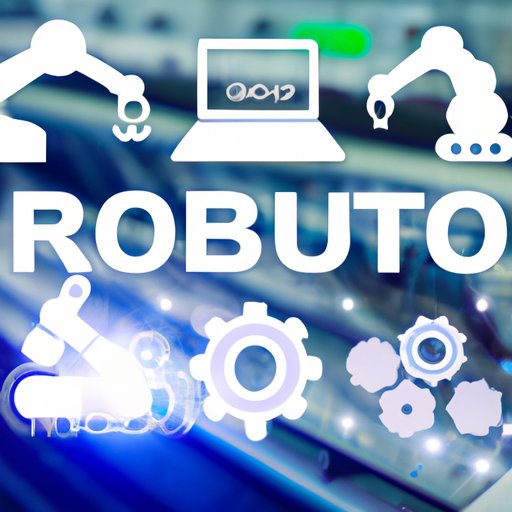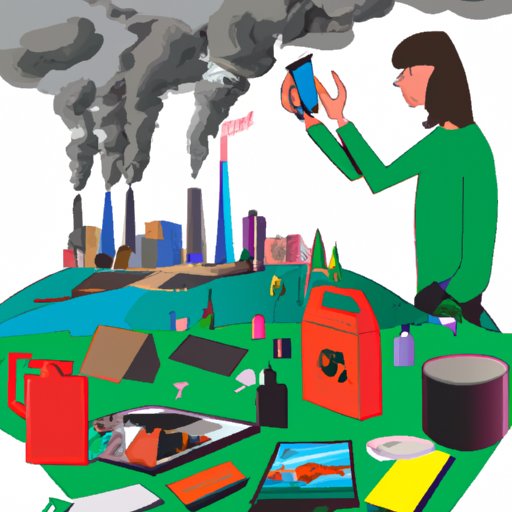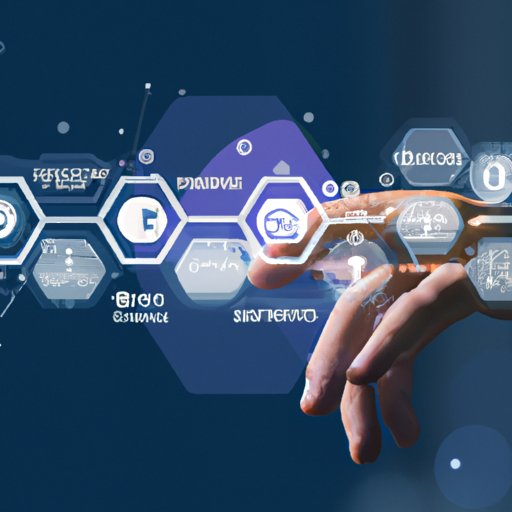Introduction
Technology has become an integral part of our lives, transforming how we work, learn, play, and interact. But what exactly is technology? According to the Oxford Dictionary, it is “the application of scientific knowledge for practical purposes, especially in industry.” This definition encompasses a wide range of things, from the latest gadgets and apps to more complex systems and processes.
In this article, we will explore how technology affects our lives, focusing on its impact on education, the workplace, healthcare, social media, artificial intelligence, the environment, and cybersecurity.
Positive Impact of Technology on Education
The use of technology in education has drastically changed the way students learn and access information. It has also had a positive effect on learning outcomes, as demonstrated by research conducted by the National Center for Education Statistics. The study found that students who used computers scored higher on standardized tests than those who did not, indicating that technology can improve educational performance.
Technology has also enabled increased access to information, with students able to access resources such as online libraries and databases. This has made it easier for them to find relevant information quickly and efficiently, which can help them develop their research skills.
Furthermore, technology has enhanced collaboration and communication between students and teachers, allowing them to connect and share ideas more easily. For example, many schools now use video conferencing tools such as Skype or Zoom to conduct virtual classroom sessions, enabling students to engage with their teachers and classmates even when they are not in the same room.

Benefits of Automation and Robotics in the Workplace
Automation and robotics have had a significant impact on the workplace, increasing productivity and reducing costs. According to the International Federation of Robotics, industrial robots are now responsible for more than 1.5 million jobs worldwide, with their numbers expected to increase significantly in the coming years.
Robots can also enhance safety in the workplace, as they can perform tasks that would be too risky for humans. For example, robots are used in hazardous environments such as nuclear power plants to reduce the risk of accidents. Additionally, they can be used to monitor dangerous situations, providing real-time data to help prevent potential disasters.
Finally, automation and robotics can create new job opportunities, as companies require people to design, develop, and maintain robotic systems. This can lead to an increase in demand for workers with experience in engineering and computer science.
How Technology is Transforming Healthcare
Technology has revolutionized healthcare, improving patient care and making it more efficient. For example, electronic health records (EHRs) are now widely used, enabling doctors to access patient information quickly and accurately. This can help reduce medical errors and improve the quality of care.
Furthermore, advances in medical technology have enabled more accurate diagnoses, with doctors now able to detect diseases and conditions earlier than ever before. This can help prevent serious illnesses and save lives.
Finally, technology has improved the delivery of healthcare services, with telemedicine now being used to provide remote consultations and treatments. This can help increase access to healthcare, particularly in rural areas where there may be a shortage of medical professionals.

Exploring the Impact of Social Media on Society
Social media has had a profound influence on society, connecting people from all over the world and providing a platform for sharing information and creating conversations. It has also increased awareness about important issues, enabling people to take action and make their voices heard.
However, there are also potential negative effects of social media, such as cyberbullying, addiction, and the spread of fake news. It is important to be aware of these risks and take steps to protect yourself and your loved ones.
The Use of Artificial Intelligence in Everyday Life
Artificial intelligence (AI) is becoming increasingly commonplace in our everyday lives, automating tasks and enhancing experiences. For example, AI can now be used to automate mundane tasks such as scheduling appointments or ordering groceries, freeing up time for more important activities.
AI can also be used to improve customer service, with chatbots now being used to answer customer queries and provide personalized recommendations. This can help businesses save time and money, while providing customers with a better overall experience.
While the use of AI can bring many benefits, it also raises some ethical concerns, such as privacy and autonomy. It is important to consider these issues when developing AI systems to ensure that they are used responsibly.

Understanding the Effects of Technology on the Environment
Technology has both positive and negative impacts on the environment. On the one hand, it can help reduce pollution and waste through the use of renewable energy sources and energy-efficient technologies. On the other hand, it can contribute to climate change by increasing emissions of greenhouse gases.
It is important to be aware of the environmental impact of technology and take steps to reduce it. This can include using renewable sources of energy, reusing and recycling materials, and conserving water and other resources.

Examining the Role of Technology in Cybersecurity
Technology plays a key role in protecting against cyberattacks and keeping sensitive data secure. For example, encryption can be used to protect data from unauthorized access, while authentication measures such as two-factor authentication can help prevent fraud and identity theft.
However, technology can also present risks, such as the potential for malicious actors to exploit vulnerabilities in software or hardware. It is important to stay up to date on the latest security threats and take steps to protect yourself and your organization.
Conclusion
Technology has had a huge impact on our lives, transforming how we work, learn, play, and communicate. From automation and robotics in the workplace to artificial intelligence in our everyday lives, technology has enabled us to do things faster and more efficiently.
At the same time, technology has also had an impact on the environment and our security, with both positive and negative consequences. It is important to be aware of these impacts and take steps to minimize any potential risks.
Overall, technology has become an essential part of modern life and will continue to shape our future. By understanding how technology affects us, we can better prepare ourselves for the changes ahead.
(Note: Is this article not meeting your expectations? Do you have knowledge or insights to share? Unlock new opportunities and expand your reach by joining our authors team. Click Registration to join us and share your expertise with our readers.)
